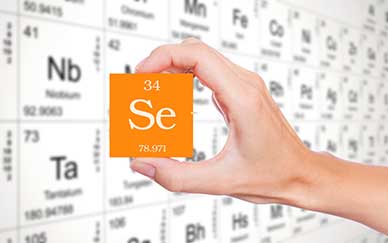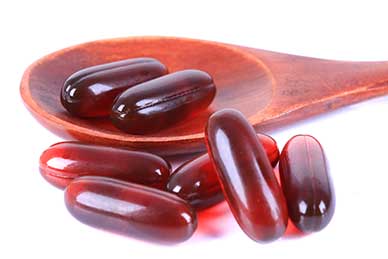What is your ideal work schedule? While the answer will vary from person to person, most people prefer a day shift that does not begin too early or end excessively late. Exactly what is too early or too late? New research suggests that the answer to this question largely depends on your age.
The Circadian Rhythm of Teens
By the time many adolescents apply for their first job, they have already settled into a circadian rhythm that roughly resembles that of adults. However, there are key differences that set teens apart. Mostly notably, teens fall asleep and wake later. They begin to release melatonin later in the day so their circadian rhythm is a little delayed compared to adults. These brain differences can linger well into the mid-20s, at which time your brain has officially grown up.
Many teens suffer from a disorder called “social jet lag,” in which they are required to awaken too early for school, work and other obligations and thus suffer health consequences. Pediatricians advocate for schools and other youth activities to begin at 9 a.m. or later and suggest that early start times may be a partial cause of health problems ranging from depression to obesity.
 In adulthood, the ideal work schedule mainly depends on your unique circadian rhythm, which research has found is primarily a product of genetic factors. Experts recommend that people work a schedule that allows them to take advantage of their most energetic and wakeful times of the day while sleeping at the time of night that is best for them. However, for many people this ideal work schedule is not possible. Shift work is common and can have devastating health effects, some of which last up to five years after the worker has resumed a normal day shift.
In adulthood, the ideal work schedule mainly depends on your unique circadian rhythm, which research has found is primarily a product of genetic factors. Experts recommend that people work a schedule that allows them to take advantage of their most energetic and wakeful times of the day while sleeping at the time of night that is best for them. However, for many people this ideal work schedule is not possible. Shift work is common and can have devastating health effects, some of which last up to five years after the worker has resumed a normal day shift.
Getting poor-quality sleep may set people up for a host of serious diseases later in life. The brain undergoes cleaning processes during sleep, which remove metabolic wastes that can later contribute to dementia. In addition, many cells in the human body perform essential repair processes when we sleep, which prevents aging and even can lower one’s risk of cancer. Getting a sufficient quality and quantity of sleep every night is an important way of reducing the long-term effects of age and keeping your body healthy.
Middle Age: When the Ideal Work Week Shortens
When most people hit their forties, they are working more hours than ever. Their children are older and education is complete, allowing a complete focus on career. However, powering through your last decades of work may be bad for your health. According to a recent study, the ideal work week for the health of middle-aged people is 25 hours, or just three days per week.
While it is important to stay active and continue being productive as we age, working too many hours, or at odd hours, can lead to stress and health problems. Many companies are shortening the length of the work week and finding this decision yields happier, healthier and more productive employees. Allowing ample time to rest, relax and engage in fulfilling activities allows people to more easily maintain a healthy circadian rhythm.
Working Through Retirement: Effects on Circadian Rhythm
 We do not currently know the ideal work schedule for people over the age of 65 because working past this age is a relatively new phenomenon. Humans were once lucky to live to this age, but now around 27 percent of modern people plan to continue working into their golden years. Older people tend to go to sleep earlier, wake more often, arise at an early time and compensate later with napping or rests throughout the day. Working may make it difficult for these people to get the “catch up” sleep that they need to stay healthy and thrive. We have no idea how working well into old age may affect the human body as this is such a new shift. People in years gone by were almost always deceased or incapacitated by that age.
We do not currently know the ideal work schedule for people over the age of 65 because working past this age is a relatively new phenomenon. Humans were once lucky to live to this age, but now around 27 percent of modern people plan to continue working into their golden years. Older people tend to go to sleep earlier, wake more often, arise at an early time and compensate later with napping or rests throughout the day. Working may make it difficult for these people to get the “catch up” sleep that they need to stay healthy and thrive. We have no idea how working well into old age may affect the human body as this is such a new shift. People in years gone by were almost always deceased or incapacitated by that age.
The world cannot always accommodate one’s ideal work schedule. We will always need night nurses, police officers and other nighttime workers. However, it is important to know what amount and timing of work is the healthiest. This will allow us to ensure that more people have a healthy circadian rhythm and that we can screen those who work odd shifts for the resulting health risks.
 Having low selenium levels not only increases your risk of liver cancer, but it also increases your risk of death by any type of cancer. Scientists have also observed that selenium-rich geographical regions have lower cancer rates on average. Not very much research has been done yet on specific cancers as they relate to selenium intake. One study done in the Netherlands found that
Having low selenium levels not only increases your risk of liver cancer, but it also increases your risk of death by any type of cancer. Scientists have also observed that selenium-rich geographical regions have lower cancer rates on average. Not very much research has been done yet on specific cancers as they relate to selenium intake. One study done in the Netherlands found that  The problem for many modern people is that reducing light exposure can be a difficult task. We have televisions and devices that can be turned off, but these are not the only contributors to an increasingly light world. Many streetlights are high color temperature LED lights, which cause a huge range of negative health effects. In fact, the
The problem for many modern people is that reducing light exposure can be a difficult task. We have televisions and devices that can be turned off, but these are not the only contributors to an increasingly light world. Many streetlights are high color temperature LED lights, which cause a huge range of negative health effects. In fact, the  However, many people in the modern world struggle to achieve healthy digestion, absorption, and elimination, including
However, many people in the modern world struggle to achieve healthy digestion, absorption, and elimination, including  New research is showing that the health benefits of prebiotics may extend beyond our gastrointestinal tracts. People who supplement with prebiotics have healthier digestion and are even
New research is showing that the health benefits of prebiotics may extend beyond our gastrointestinal tracts. People who supplement with prebiotics have healthier digestion and are even  Our bodies make an enzyme called superoxide dismutase that removes oxygen free radicals, binding them to other molecules so they cannot cause damage. As we age, our bodies do not create this important enzyme as effectively. The result is that our cells suffer small amounts of damage that lead to the physical symptoms and increased health risks associated with growing old. For centuries, ancient explorers searched fruitlessly for the “Fountain of Youth,” but we are still left with no real way to slow down aging, let alone prevent or reverse it.
Our bodies make an enzyme called superoxide dismutase that removes oxygen free radicals, binding them to other molecules so they cannot cause damage. As we age, our bodies do not create this important enzyme as effectively. The result is that our cells suffer small amounts of damage that lead to the physical symptoms and increased health risks associated with growing old. For centuries, ancient explorers searched fruitlessly for the “Fountain of Youth,” but we are still left with no real way to slow down aging, let alone prevent or reverse it. Several studies have found
Several studies have found  Grapes have always been a healthy snack, but this research suggests that they offer more health benefits than the average fruit. There have been
Grapes have always been a healthy snack, but this research suggests that they offer more health benefits than the average fruit. There have been